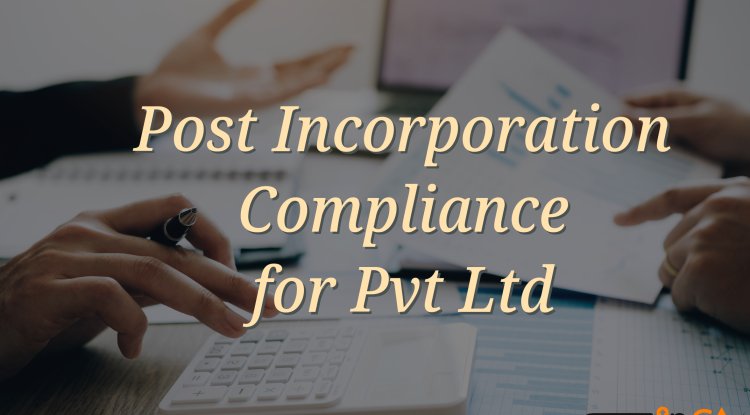Doing Business in India Overview of commencing business in India by foreign investors
FDI permitted by automatic route in LLPs operating in sectors / activities where 100?I is permitted.

Setting Up Business in India
Foreign Investor can commence business in India as:
1. Indian Company*
-
Joint Venture
-
Wholly Owned Subsidiary
JV/ Wholly Owned Subsidiary as (i) Private Limited or (ii) Public Limited Company, s.t. Companies Act, 2013
2. Foreign Company*
-
Liaison Office
To represent, in India, the parent company
-
Branch Office
To carry out activities such as exporting, importing, research, consulting, etc.
-
Project Office
Activities pursuant to the contract for project implementation.
3. Limited Liability Partnership
LLP
Subject to provisions of LLP Act, 2008
FDI permitted by automatic route in LLPs operating in sectors/activities where 100 % FDI is permitted by automatic route and performance conditions are not FDI-linked *
The incorporation of an Indian company is s.t. Industrial caps and necessary approvals
* * RBI guidelines on the establishment of LO/ BO/ PO. According to the Companies Act 2013, only a resident Indian with PAN is to be appointed for foreign company notifications in India.
Types of Permitted Business Establishments
Different business establishment in India
| PARTICULARS | PRIVATE | PUBLIC | OPC | LLP |
| Min Members | 2 | 7 | 1 | 2 Partners |
| Max Member | 200 | Unlimited | 1 | No Limit |
| Min Directors | 2 | 3 | 1 | 2 Designated Partner |
| Max Director | 15* | 15* | 15* | NA |
| Resident Director | 1 Mandatory | 1 Mandatory | 1 Mandatory | 1 Designated Partner |
| Transfer of ownership | Ownership can be transferred | Ownership can be transferred | Ownership can be transferred to nominee in the event of death of owner | Ownership can be transferred |
| Subscription of shares | Public subscription not allowed | Public subscription allowed | Public subscription not allowed | Public subscription not allowed |
| Issue of prospectus | Not Mandatory | **Mandatory | Not Mandatory | Not Mandatory |
| Managerial Remuneration | No limit for managerial personnel | Shareholder approval is required, if remuneration payable is above limits | NA | Remuneration is based on LLP agreement |
| Commencement of business/operations | Declaration to be filed prior to commencement | Declaration to be filed prior to commencement | Declaration to be filed prior to commencement | Immediately after obtaining certificate of incorporation |
| Legal Status | Pvt Co is a separate legal entity registered under Companies Act, 2013. The Directors are liable for defaults made under the act | Public Co is a separate legal entity registered under Companies Act, 2013. The Directors are liable for defaults made under the act | OPC is a separate legal entity registered under Companies Act, 2013. The Directors are liable for defaults made under the act | LLP is a separate legal entity registered under LLP Act, 2008. The Designated partners of LLP are liable for contraventions under the act |
| Governing Act/Law | Companies Act, 2013 | Companies Act, 2013 | Companies Act, 2013 | LLP Act, 2008 |
| Anual Statutory Filings | Annual statement of accounts & annual return with ROC | Annual statement of accounts & annual return with ROC | Annual statement of accounts & annual return with ROC | Annual statement of solvency & annual return with ROC |
| Annual Fillings & Audit | IT return to be filed. Audit mandatory | IT return to be filed. Audit mandatory | IT return to be filed. Audit mandatory |
IT return to be filed. Audit mandatory in case turnover exceeds INR 40 lakhs or contribution exceeds INR 25 lakhs
|
Note:
Resident Director: Sec 149(3)-For a total period of not less than 182 days in the financial year, each company should have at least one director who has stayed in India.
After passing a special resolution, the company may appoint more than fifteen directors, furthermore, provided that at least one woman director is in the class or classes of companies as prescribed (Rule 3 of the Companies (Appointment and Qualification of Directors) Rules, 2014)
Commencing Business in india as LO/BO/PO
Eligibility
Liaison Office (LO)
In the immediately preceding three financial years in the home country, profit making track record and net worth of not less than $50,000 or its equivalent.
Branch Office (BO)
Profit making track record during the immediately preceding five financial years in the home country and net worth of not less than $100,000 or its equivalent.
Project Office (PO)
Nil
Permitted Activities
LO
LO is unable to undertake any commercial activity and acts as a communication channel between the principal place of business or the head office of the company and the entities in India. Its role is limited to gathering information about possible market opportunities and providing prospective Indian clients with information about the company and its products. It can encourage export / import from / to India and also facilitate technical / financial cooperation between India's parent company and businesses. In India, they can't earn any income.
BO
BO can be established by foreign firms. Activities permitted include the export / import of goods; the rendering of professional or consultancy services; the performance of research work involving the parent company; the promotion of technical or financial collaborations between Indian companies and the parent company or the overseas group; the representation of the parent company in India and the purchasing / selling agent in India; the rendering of information services
General permission to undertake manufacturing and service activities is granted to non-resident companies for the establishment of BOs in the Special Economic Zones ( SEZs) subject to:
- BOs are functioning in those sectors where 100% FDI is permitted
- BOs comply with Chapter XXII of the Companies Act, 2013
- BOs function on a stand-alone basis
PO
PO can be set up to execute specific projects in India and cannot undertake or carry on any activity other than the activity relating and incidental to the execution of the project.
Remittance
LO
NA
BO
Allowed to remit profits net of the taxes applicable and upon presentation of the required documents.
PO
Intermittent remittances from undertakings pending liquidation authorised by s.t. AD Category 1 bank's satisfaction.
Validity
LO
In general, 3 years
* except for NBFCs and entities engaged in the construction and development sectors for which the period of validity is only two years.
BO
Nil
PO
As per the tenure of the project
What's Your Reaction?




















